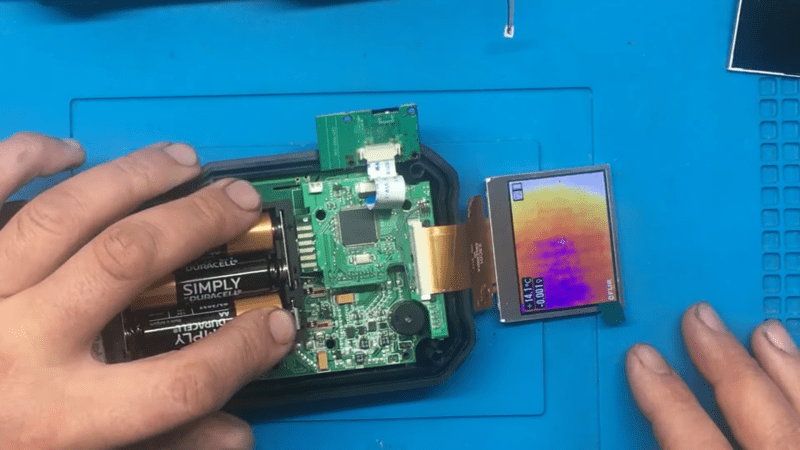
When it comes to repairability of electronic devices, much depends on how helpful the original manufacturer is. Some make repairs very easy by publishing detailed service manuals and selling spare parts. Others keep everything under wraps to protect their intellectual property, turning even a supposedly simple fix into a reverse engineering ordeal. When [BuyItFixIt] got his hands on a FLIR multimeter-thermal camera combination instrument with a broken display, he quickly found that FLIR was firmly in the “all our designs are top secret” camp and wouldn’t even tell him what kind of display they had used.
Not to be deterred, [BuyItFixIt] took the meter apart and tried to find out what was going wrong. The signals from the microprocessor seemed to reach the display OK, so the fault was somewhere in the screen itself. The display’s part number didn’t return any useful results online, but AliExpress did have a very similar-looking display available with a slightly different part number. This display seemed to work at first, but the instrument then got caught in a boot loop.
Unlike FLIR, the supplier of the replacement display was happy to supply datasheets, and even had one available for the original FLIR part. With this new information [BuyItFixIt] was able to deduce that the new screen didn’t output one signal that the processor expected to see, causing it to reset itself. A simple workaround was to connect the corresponding pin to a PWM signal from the backlight controller, which fooled the CPU into thinking the proper display was connected.
In this case, a $12 display and a single piece of wire were enough to bring an expensive instrument back to life, but things are not always that simple. More complex machines can take weeks to debug, even if parts are available. If not, you might even need to design your own.
0 Commentaires